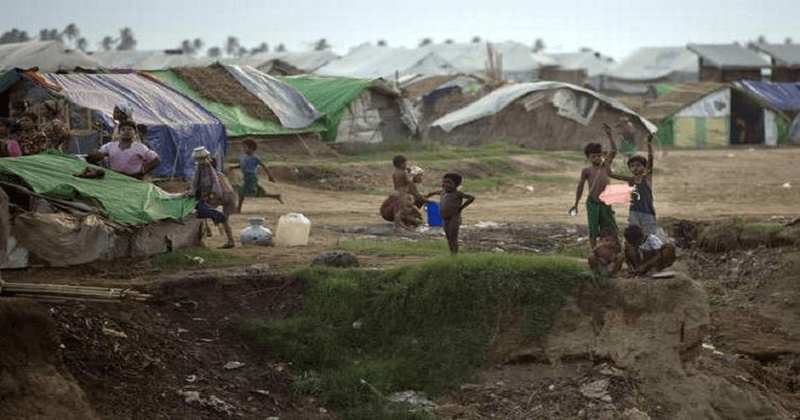
The UN has said that lives of tens of thousands of Rohingya refugees under the monsoon and cyclone seasons threaten their makeshift camps in Bangladesh. According to the UN estimates, nearly 700,000 minority Rohingya Muslims have in Bangladesh to escape violence in Myanmar’s Rakhine State since August 25 last year when the army launched a military crackdown. The United Nations migration agency — the International Organization for Migration (IOM) — appealed for urgent financial support to prepare the area in southern Bangladesh against floods and landslides.
“We cannot wait for funding to come in after the emergency is over and possibly preventable tragedies have occurred,” said John McCue, IOM’s Senior Operations Coordinator in Cox’s Bazar. “We need to be able to act now if lives are to be saved,” he said.
“Tarp stocks are also rapidly running out and the IOM, which oversees shelter distribution, reports that by mid-May supplies will fall below critical levels,” McCue said.
He expressed that without more funding, neither new shelters nor replacements would be available to those who lost homes during storms. He also pointed out that other risks included safe water supply systems, which if collapsed could put hundreds of thousands of refugees in jeopardy of waterborne diseases.
Aid staff on the ground are working to improve shelters, secure key access roads and have emergency response services ready should the worst happen, “but the harsh truth is that we cannot keep doing that if we do not have the funds,” McCue said.
UN Secretary-General Antonio Guterres’ spokesman Stephane Dujarric said the overall population of Rohingya refugees in Bangladesh is currently estimated to be over one million.
Read More: Air strike on Yemen’s capital Sana’a by Saudi-led military coalition killed Huthi rebels
New refugees are still arriving, with some 8,000 new arrivals since January 2018, he said.
The latest round of food distribution reached over 470,000 people and humanitarian partners on the ground also conduct protection monitoring missions to support survivors of sexual and gender-based violence, Dujarric said.

Post Your Comments